Projects and initiatives

Projects and initiatives
HealthToxicology
The NAM Navigator: A unique repository for information on the validation and acceptance of New Approach Methodologies
The NAM navigator is an innovative knowledge portal to navigate you to and through valuable information on the development, standardization, validation and acceptance of New Approach Methodologies (NAM). The NAM Navigator acts as an online guide that provides specific information needed in each of these steps, thereby increasing the broad use of animal-free innovations. Follow the link in the video to start navigating!

Projects and initiatives
HealthToxicologyIn vitroIn silico
VHP4Safety project
The safety testing of chemicals and pharmaceuticals traditionally relies on animal studies. However, these raise ethical concerns and often fail to accurately predict human responses. New scientific developments offer opportunities to build a Virtual Human Platform (VHP) for safety assessment, a platform that enables assessment based solely on human physiology and biology, integrating data from in vitro and in silico models. This video explains how we are developing the VHP through an interdisciplinary approach. Read the paper in the videolink or visit or VHP4Safety (https://vhp4safety.nl/) for more information.

Projects and initiatives
HealthIn vitroOrgan-on-Chip
NXTGEN Hightech Biomed
The Netherlands has strong academic knowledge in areas like Lab-on-Chip, Organ-on-Chip, artificial organs, and cell production technology. However, turning this knowledge into actual products is challenging due to the need for collaboration between different technological and biological specialists. The NXTGEN Hightech program (https://nxtgenhightech.nl/en/biomed/) addresses this by creating a collaborative environment where companies from various fields work together. This approach aims to transform academic insights into innovative products, benefiting both the industry and society.
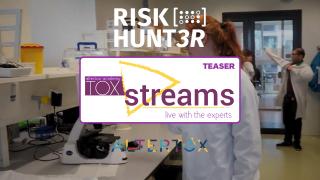
Projects and initiatives
HealthToxicologyIn vitro
RISKHUNT3R project – interview by TOXstreams
Many studies are focused on finding the next best tool or test to assess the risk associated with chemical exposure. That is all well and good, but even the perfect assay needs to be accepted by regulators before seeing the light of the day. And how do we do that? The guests in this webinar have some ideas on that as principal investigators of the EU project RISK HUNT3R. Prof. Bob van de Water, Dr Mirjam Luijten and Dr Andrew White explain what RISK HUNT3R is doing, what next generation risk assessment means and why it is so important. Click on the link in the video to watch the whole interview.

Projects and initiatives
HealthToxicologyIn vitro
PrecisionTox project – interview by TOXstreams
What do nematodes, zooplanktons, clawed frogs, fruit flies, zebrafishes and humans have in common? Well, they are all part of the EU-funded project PrecisionTox. In this teaser for the TOXstreams interview, PrecisionTox researchers explain how they are combining non-traditional test species with molecular and computational methods to better protect our society from toxic chemicals. Prof. John Colbourne, the project’s coordinator, Dr Gaëlle Hayot, Christina Cramer von Clausbruch will tell all you want to know. Click on the link in the video to watch the whole interview.
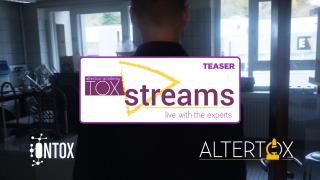
Projects and initiatives
HealthToxicologyIn vitro
ONTOX project – interview by TOXstreams
Have you ever wondered how one can actually develop a new approach method (NAM) to replace animal testing in toxicology? The ONTOX project is creating not just one but six different NAMs. Indeed, this EU-funded project is focused on building NAMs to study repeated dose toxicity effects, an area of toxicology that still relies heavily on animal testing. Prof. Mathieu Vinken, the project’s coordinator, Jian Jiang, PhD, Anouk Verhoeven and Jonas van Ertvelde explain their work to TOXstreams. Click on the link in the video to watch the full episode.

Projects and initiatives
HealthIn vitro
CONNECT
Many people worldwide suffer from brain diseases. These diseases are often hard or even impossible to treat. One of the reasons for this that potentially beneficial drugs cannot pass through the blood-brain barrier. The CONNECT project aims to develop a blood-brain barrier model and connect this to a brain model, all derived from cells. With this advanced in vitro test system, researchers aim to be able to study how drugs can be transferred more effectively and safely over the blood-brain barrier in an animal-free and human-relevant manner.
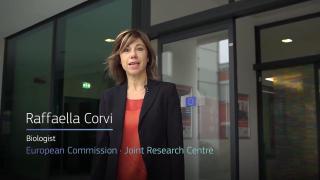
Projects and initiatives
HealthInnovationPolicy
EURL ECVAM
The EU Reference Laboratory for alternatives to animal testing (EURL ECVAM) promotes and facilitates the use of non-animal methods in testing and research. It validates, disseminates and shares knowledge on the 3Rs (Replacement, Reduction and Refinement of animal experiments). In this video, Raffaella Corvi explains what EURL ECVAM does in the field of safety testing of chemicals while reducing laboratory animal testing.
Watch the accessible version of the video here (https://audiovisual.ec.europa.eu/en/video/I-230374).
©European Union, 2021
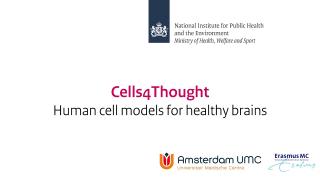
Projects and initiatives
HealthToxicologyInnovationIn vitro
Cells4Thought: using iPSCs for neurodevelopmental health
The prevalence of neurodevelopmental disorders (NDDs), including cognitive impairments, is increasing worldwide with great impact on daily life quality. There is evidence that exposure to chemicals may contribute to the incidence of NDD. However, a causal link is lacking. Towards this goal, a human-relevant in vitro model system mimicking parts of brain development, such as neuronal network functioning, could be used for mechanistic research on how gene-environment interactions contribute to the development of NDD. This is going to be studied in the project Cells4Thought, using induced pluripotent stem cells form different individuals to study the effect of chemicals on neuronal differentiation.
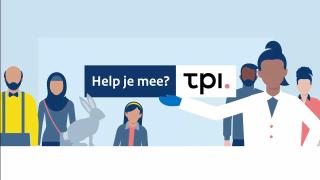
Projects and initiatives
HealthInnovationPolicyBeginner
We all want a safer world for humanity, animals and the environment: Transition Animal-free Innovation
Why is the transition to animal-free research so important? What are animal-free models? How does TPI (Transition Animal-Free Innovation) encourage their development and use? And who are we working with to make this happen? We explain this in our animation.
More and more animal-free tests and research methods are becoming available, but not all research questions or safety tests can be answered in this way yet. In addition, the validation, qualification and acceptance of non-animal innovations still lags behind. Therefore, the Dutch Ministry of Agriculture, Nature and Food Quality (LNV) stimulates the development and application of animal-free innovations. This is done with the partner programme Transition Animal-free Innovation (TPI).
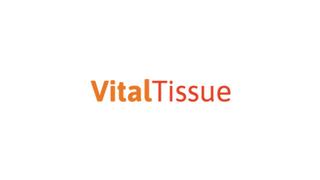
Projects and initiatives
HealthInnovationIn vitro
VitalTissue: scientific research can be more human(e)
The goal of VitalTissue is to facilitate the availability of vital human residual tissue for all researchers in the Netherlands. This video shows how VitalTissue works. From a request from a researcher, the donation of the residual tissue by the patient and the transport to the lab. This process is the result of a feasibility study conducted with many stakeholders. The national tissue bank ETB-BISLIFE will implement VitalTissue in practice.
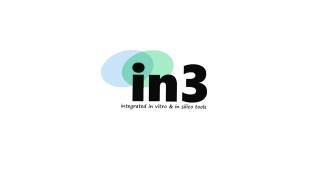
Projects and initiatives
HealthToxicologyIn vitroIn silicoOrgan-on-Chip
In3: combining in vitro and in silico for chemical safety assessment
The in3 project aims to drive the synergistic development and utilisation of in vitro and in silico tools for human chemical and nanomaterial safety assessment. The project focused on differentiation of human induced pluripotent stem cells to toxicologically relevant target tissues including; brain, lung, liver and kidney. The tissues, from the same genetic backgrounds, were exposed to common compounds and the data generated and prediction tools generated were used to develop modernised safety assessment approaches combining cheminformatics, mechanistic toxicology and biokinetics into computational models which can account for donor and tissue specific effects.